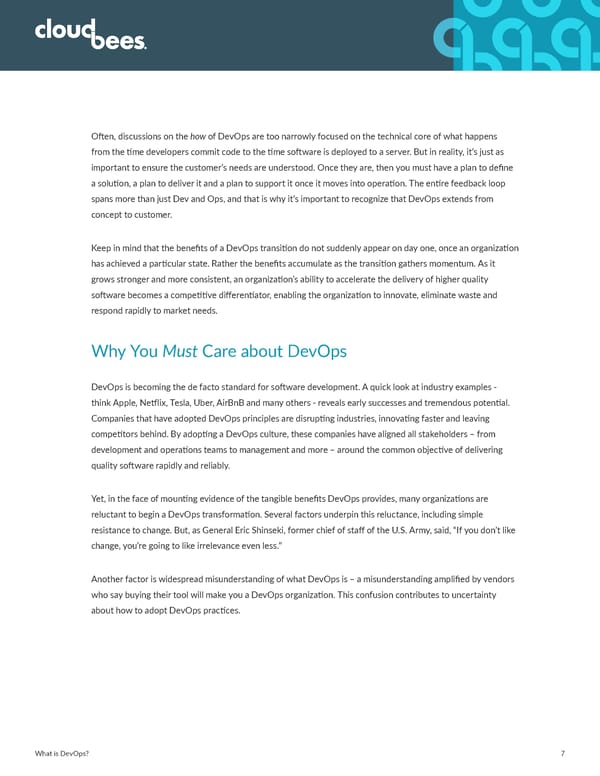Often, discussions on the how of DevOps are too narrowly focused on the technical core of what happens from the time developers commit code to the time software is deployed to a server. But in reality, it’s just as important to ensure the customer’s needs are understood. Once they are, then you must have a plan to define a solution, a plan to deliver it and a plan to support it once it moves into operation. The entire feedback loop spans more than just Dev and Ops, and that is why it’s important to recognize that DevOps extends from concept to customer. Keep in mind that the benefits of a DevOps transition do not suddenly appear on day one, once an organization has achieved a particular state. Rather the benefits accumulate as the transition gathers momentum. As it grows stronger and more consistent, an organization’s ability to accelerate the delivery of higher quality software becomes a competitive differentiator, enabling the organization to innovate, eliminate waste and respond rapidly to market needs. Why You Must Care about DevOps DevOps is becoming the de facto standard for software development. A quick look at industry examples - think Apple, Netflix, Tesla, Uber, AirBnB and many others - reveals early successes and tremendous potential. Companies that have adopted DevOps principles are disrupting industries, innovating faster and leaving competitors behind. By adopting a DevOps culture, these companies have aligned all stakeholders – from development and operations teams to management and more – around the common objective of delivering quality software rapidly and reliably. Yet, in the face of mounting evidence of the tangible benefits DevOps provides, many organizations are reluctant to begin a DevOps transformation. Several factors underpin this reluctance, including simple resistance to change. But, as General Eric Shinseki, former chief of staff of the U.S. Army, said, “If you don’t like change, you’re going to like irrelevance even less.” Another factor is widespread misunderstanding of what DevOps is – a misunderstanding amplified by vendors who say buying their tool will make you a DevOps organization. This confusion contributes to uncertainty about how to adopt DevOps practices. What is DevOps? 7
 What is DevOps ? Page 7 Page 9
What is DevOps ? Page 7 Page 9